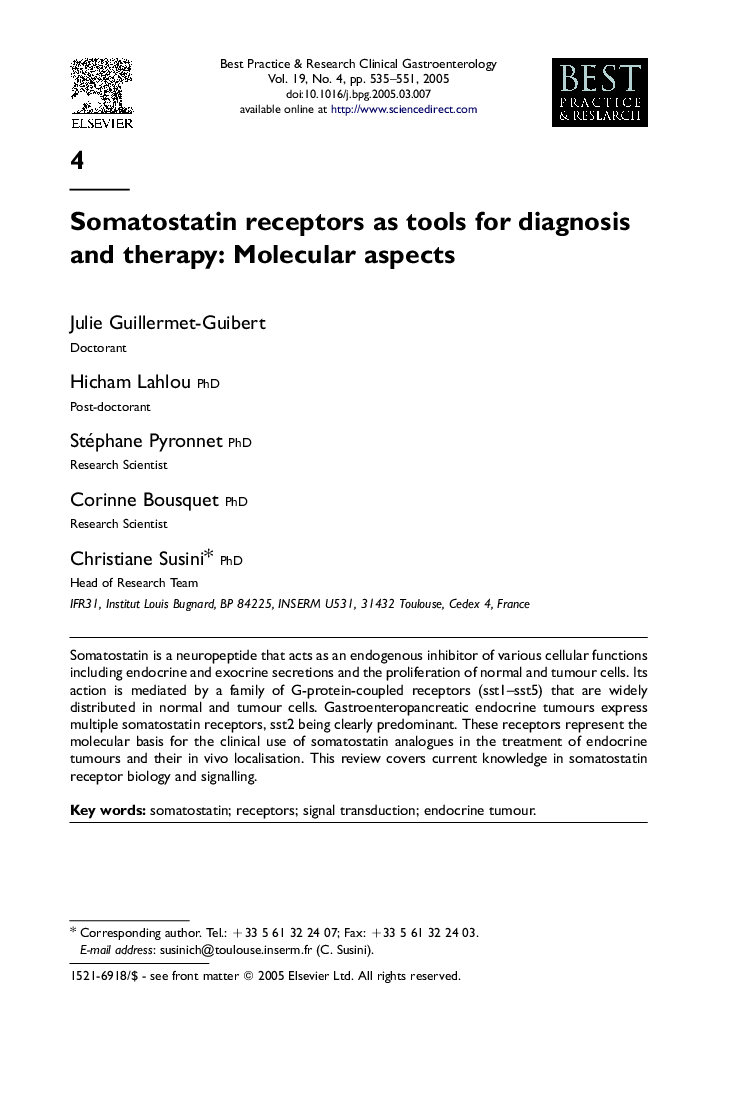| Article ID | Journal | Published Year | Pages | File Type |
|---|---|---|---|---|
| 9236395 | Best Practice & Research Clinical Gastroenterology | 2005 | 17 Pages |
Abstract
Somatostatin is a neuropeptide that acts as an endogenous inhibitor of various cellular functions including endocrine and exocrine secretions and the proliferation of normal and tumour cells. Its action is mediated by a family of G-protein-coupled receptors (sst1-sst5) that are widely distributed in normal and tumour cells. Gastroenteropancreatic endocrine tumours express multiple somatostatin receptors, sst2 being clearly predominant. These receptors represent the molecular basis for the clinical use of somatostatin analogues in the treatment of endocrine tumours and their in vivo localisation. This review covers current knowledge in somatostatin receptor biology and signalling.
Related Topics
Health Sciences
Medicine and Dentistry
Endocrinology, Diabetes and Metabolism
Authors
Julie (Doctorant), Hicham (Post-doctorant), Stéphane (Research Scientist), Corinne (Research Scientist), Christiane (Head of Research Team),
